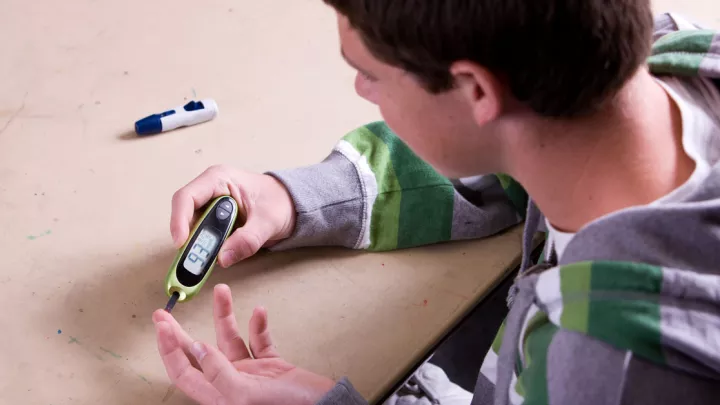
What Is Diabetic Ketoacidosis?
More than 30 million Americans live with diabetes, including 210,000 under the age of 20. One of the potential complications of the disease is diabetic ketoacidosis, or DKA.
Lily Chao, MD, Interim Medical Diabetes Director and Director of the Type 2 Diabetes Clinic at Children’s Hospital Los Angeles, offers her expert perspective on the condition.
How DKA impacts the body
Diabetic ketoacidosis develops when the body can't produce enough insulin, an essential hormone made by the pancreas that plays a key role in helping the cells use glucose and fuel the body. Without enough insulin, the body has to break down fat as fuel. This process produces ketones, a type of acid, in the bloodstream. Excessive amounts of these acids trigger a condition known as diabetic ketoacidosis, which can alter the normal function of organs throughout the body.
When the acid level builds up quickly, it can be very dangerous. People living with Type 1 diabetes cannot produce enough insulin for their bodies. If they don’t receive sufficient insulin (through insulin pumps, pods, injections, etc.), they can develop DKA within 8 to 12 hours. Although less common, children and adults with Type 2 diabetes can develop the condition as well.
Dr. Chao notes that people on the popular Keto Diet strive to achieve healthy levels of the same ketones in their blood to burn fat. The difference: These people are not insulin deficient, and therefore their blood does not become dangerously acidic.
“It’s all about the acid in the blood,” she says. “That’s what makes DKA so alarming. It can be a matter of days before things go from stable to dire.”
Symptoms, treatment and complications of DKA
Symptoms of DKA can develop quickly and include:
- Excessive thirst
- Frequent urination
- Nausea
- Vomiting
- Stomach pain
- Weakness or fatigue
- Shortness of breath
- Confusion
More specific signs include blood sugar levels of higher than 300 milligrams per deciliter, and high ketone levels—both of which can be detected by home blood glucose and urine testing kits.
Generally, DKA is treated during a hospital stay with fluids, electrolytes and insulin.
Dr. Chao says that repeated serious episodes of DKA can affect cognition; recent literature on the subject suggests that multiple or cascading DKA episodes and the related hyperglycemia can be harmful to the brain.
“Each of these incidents is like an attack on the body,” she explains. “The more of those attacks your body endures, the more the effects will show.”
In April 2021, Dr. Chao published a study, which found that in 2020 children with new-onset Type 2 diabetes had a greater incidence of DKA than previously observed. The proportion of patients diagnosed with DKA skyrocketed to 20% in 2020, up from just 3% in 2019 and 9% in 2018. Dr. Chao describes this spike as “concerning” and said more research on the relationship between COVID-19 and DKA is necessary.
“None of these reports are saying COVID-19 has caused the spike, but it’s an alarming trend, and one we need to be conscious of,” she says. One of her hypotheses for this phenomenon is delayed care during the pandemic, since doctors may not be seeing as many patients in person and some parents may feel uncomfortable going to the doctor or taking public transportation to get to a clinic.
Early testing and treatment are important
The best way to prevent DKA is for people to seek care when they develop symptoms of diabetes. The most common symptoms include frequent thirst and urination, and unintended weight loss. In people already living with diabetes, it is critical to take their prescribed medications, and take insulin as prescribed. Dr. Chao also says that monitoring blood sugar and ketone levels with urine test strips or a blood meter can help detect ketone buildup.
“Early detection of ketones provides a window of opportunity to reverse the ketosis before it becomes life-threatening,” says Dr. Chao.

